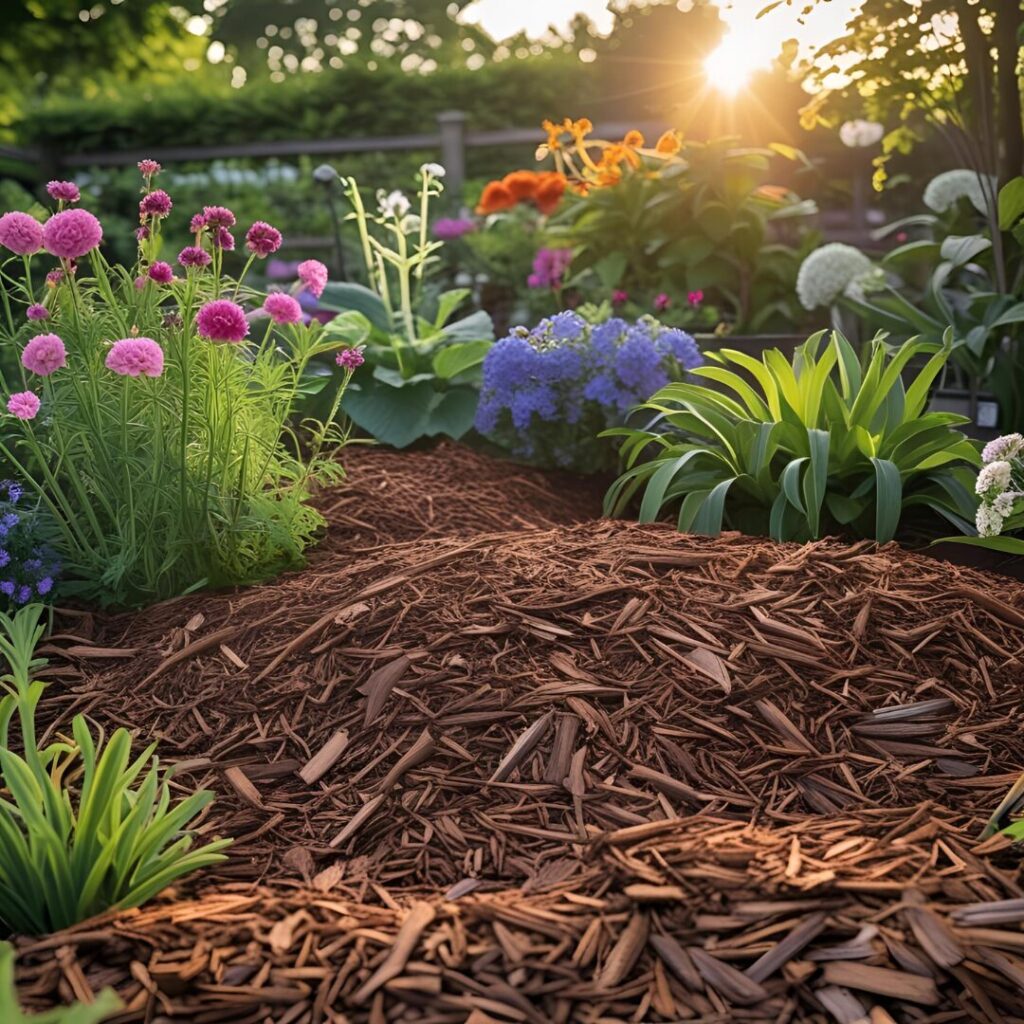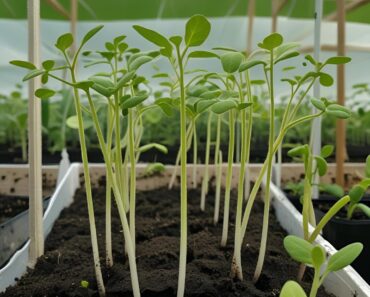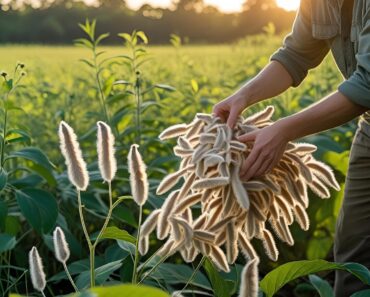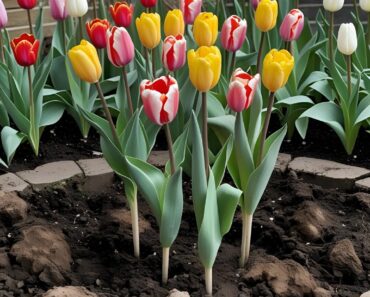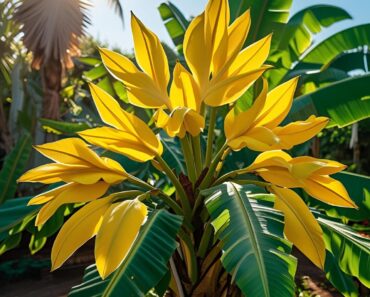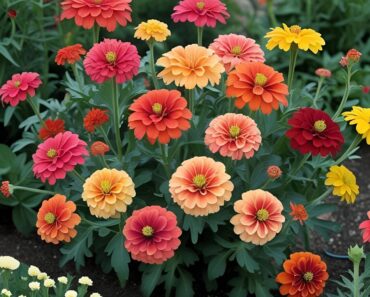Mulching is one of the most effective and environmentally friendly ways to improve your yard’s health, appearance, and sustainability. When used correctly, mulch can suppress weeds, conserve soil moisture, regulate temperature, and enrich the soil. However, improper mulching can harm plants, encourage disease, and waste resources. This comprehensive guide explores how to use mulch effectively, the best types for different situations, and crucial mistakes to avoid.
What Is Mulch and Why Use It?
Mulch is any material spread over the surface of soil to protect, insulate, or improve it. Mulches fall into two broad categories:
-
Organic mulch: Wood chips, bark, straw, compost, leaves, and grass clippings. These decompose over time, adding nutrients to the soil.
-
Inorganic mulch: Gravel, pebbles, rubber, landscape fabric, and plastic. These do not decompose but provide long-term weed suppression and soil protection43.
Key Benefits of Mulching
-
Moisture retention: Reduces evaporation, keeping soil moist and reducing the need for frequent watering23.
-
Weed suppression: Blocks sunlight, hindering weed germination and growth23.
-
Soil improvement: Organic mulches break down, enriching soil with nutrients and improving structure234.
-
Temperature regulation: Keeps soil cooler in summer and warmer in winter, protecting roots from extreme temperatures23.
-
Erosion control: Shields soil from wind and rain, reducing erosion4.
-
Aesthetic appeal: Provides a neat, finished look to garden beds and landscapes34.
How to Apply Mulch Effectively
1. Choose the Right Mulch
-
Wood chips/bark: Best for trees, shrubs, and perennial beds. Suppress weeds and decompose slowly4.
-
Straw/sugar cane: Ideal for vegetable gardens; retains moisture and keeps produce clean4.
-
Compost: Great for flower and vegetable beds; enriches soil quickly4.
-
Pebbles/gravel: Suitable for pathways, rock gardens, and succulents; long-lasting but does not improve soil fertility4.
Tip: Avoid using fresh wood chips directly around plants—they can temporarily deplete soil nitrogen as they decompose47.
2. Prepare the Area
-
Remove weeds: Pull out annuals and perennial weeds before mulching127.
-
Clean the surface: Remove debris, sticks, and old mulch that has compacted or decomposed13.
-
Level and moisten soil: Rake the area smooth and water thoroughly to ensure the soil is moist before mulching1213.
3. Apply Mulch at the Right Time
-
Spring: The best time to mulch is in early to mid-spring, after the soil has warmed up but before weeds germinate. This helps retain moisture and suppress weeds as plants begin to grow1210.
-
Autumn: Mulching in late fall insulates roots and protects them from winter cold1210.
-
Avoid mulching frozen ground: This can trap cold air and delay soil warming in spring7.
4. Spread Mulch Correctly
-
Depth: Apply mulch in a layer 2–4 inches (5–10 cm) thick for most organic materials2101314. Too little won’t suppress weeds; too much can suffocate roots and prevent water penetration78.
-
Keep away from stems and trunks: Maintain a gap of 1–6 inches between mulch and plant stems or tree trunks to prevent rot, disease, and pest problems271314. For trees, keep mulch at least 6 inches away from the trunk and extend the ring to the drip line or about 3 feet out14.
-
Even distribution: Use a rake or your hands to spread mulch evenly and avoid piles or “mulch volcanoes” that can harm plants11314.
5. Maintain and Replenish Mulch
-
Check regularly: Organic mulch decomposes over time and should be replenished once or twice a year to maintain the ideal depth27.
-
Loosen old mulch: Rake existing mulch to prevent compaction and allow air and water to reach the soil2.
-
Water after application: Lightly water the area to help the mulch settle and integrate with the soil213.
Where and When to Use Mulch
Best Places to Mulch
-
Around trees and shrubs: Mulch conserves moisture, suppresses weeds, and protects roots, especially for young trees and fruit bushes1414.
-
Flower and vegetable beds: Mulch keeps soil moist, prevents weeds, and improves soil as it breaks down1410.
-
Paths and walkways: Inorganic mulches like gravel or rubber provide durable, low-maintenance surfaces4.
-
Under hedges: Annual mulching helps feed roots and maintain moisture1.
-
Around bulbs: Mulching as foliage dies back feeds bulbs and locks in moisture1.
When Not to Mulch
-
Crown of plants: Never mulch directly over the crown (where stem meets root) of perennials or shrubs—this can cause rot and disease511.
-
Wet or humid climates: Avoid mulching during prolonged wet periods or in areas with poor drainage, as excess moisture can promote fungal diseases5811.
-
Certain plant types: Mediterranean groundcovers and drought-tolerant plants may suffer from excess moisture if mulched too heavily10.
-
With poor-quality mulch: Avoid using raw, unprocessed, or contaminated mulch, which can introduce diseases, pests, or weed seeds5712.
Common Mulching Mistakes and How to Avoid Them
| Mistake | Why It’s a Problem | How to Avoid It |
|---|---|---|
| Applying mulch too thick | Suffocates roots, prevents water/air | Use 2–4 inches only7813 |
| Mulching against stems/trunks | Causes rot, pests, disease | Keep 1–6 inch gap from stems/trunks71314 |
| Using wrong type of mulch | Nutrient imbalance, poor results | Match mulch to plant and soil needs47 |
| Using fresh wood chips/sawdust | Depletes soil nitrogen | Age mulch or supplement with fertilizer47 |
| Not removing weeds before mulching | Weeds can grow through mulch | Weed thoroughly before application127 |
| Not replenishing mulch | Loses effectiveness, allows weeds/moisture loss | Refresh mulch 1–2 times per year27 |
| Using contaminated mulch | Introduces pests, diseases, weed seeds | Source mulch from reputable suppliers712 |
| Mulching at wrong time | Traps cold, delays plant growth | Mulch after soil warms in spring or in late fall7 |
| Ignoring mulch quality | Harmful additives or decay | Inspect for mold, pests, or chemical odors712 |
| Over-mulching annuals/perennials | Smothers small plants | Use thinner layers, keep away from crowns11 |
Mulch Types: Pros, Cons, and Best Uses
| Type | Best For | Pros | Cons |
|---|---|---|---|
| Wood chips | Trees, shrubs, pathways | Suppresses weeds, slow to decompose | May deplete nitrogen if fresh, attracts pests |
| Bark | Perennials, trees, aesthetic beds | Long-lasting, attractive | Lightweight, may blow away in wind |
| Straw | Vegetable gardens, tender plants | Retains moisture, keeps fruit clean | Needs replenishing, may contain weed seeds |
| Compost | Veggie/flower beds | Enriches soil, improves structure | Decomposes quickly, needs frequent renewal |
| Gravel/pebbles | Paths, rock gardens, succulents | Long-lasting, low maintenance | Does not improve soil, can heat up soil |
| Rubber | Playgrounds, paths | Durable, good weed suppression | No soil improvement, may leach chemicals |
When Mulch Goes Wrong: Dangers and What to Watch For
-
Over-mulching: Too much mulch suffocates roots, causes rot, encourages pests, and can lead to nitrogen deficiency as organic mulch breaks down678.
-
Mulch volcanoes: Piling mulch high against tree trunks or plant stems traps moisture, inviting disease and pests671314.
-
Toxic or sour mulch: Mulch stored in large, wet piles can ferment, producing toxic gases that bleach or kill plants12. Always check for a fresh, earthy smell before use.
-
Mulch with fines: Fine, dusty mulch can retain too much moisture and foster disease, especially around crowns of plants5.
-
Colored mulches: Some dyes, especially from industrial byproducts, can alter soil chemistry or harm plants11.
Expert Tips for Mulching Success
-
Edge your beds: Create a defined edge to keep mulch in place and prevent grass encroachment9.
-
Taper edges: Thin mulch at bed edges for a neat appearance and to avoid smothering border plants14.
-
Use weed barriers with caution: Landscape fabric or plastic can block weeds but may also impede water and air flow, and slow mulch decomposition9.
-
Water before and after: Water the soil before mulching and again after to help mulch settle and seal in moisture1213.
-
Monitor and adjust: Check mulch regularly for signs of compaction, mold, or pest activity, and adjust as needed27.
Conclusion: Mulch for a Healthier, Happier Yard
Mulch is a powerful tool for gardeners and landscapers, offering a host of benefits when used wisely. By choosing the right type, applying it at the right time and depth, and avoiding common mistakes, you can create a lush, healthy, and low-maintenance yard. Remember, more is not always better—mulch thoughtfully, and your plants will thrive.
If you’re ever in doubt, consult local experts or reputable garden centers for advice tailored to your climate and plant types. With a little care and attention, mulch will be your garden’s best friend—for seasons to come.
- https://www.gardenersworld.com/how-to/maintain-the-garden/mulches-and-mulching/
- https://www.thesill.com/blogs/outdoor-plant-care/how-to-mulch-your-garden-and-types-of-mulch-you-can-use
- https://www.lockertslawncare.com/post/the-role-of-mulch-in-landscape-maintenance-benefits-types-and-application-tips
- https://www.diggerslandscapesupplies.com.au/the-ultimate-guide-to-choosing-the-best-garden-mulch/
- https://www.ozbreed.com.au/articles/the-good-the-bad-and-the-ugly-of-mulch/
- https://treenewal.com/over-mulching-the-dangers-of-too-much-mulch/
- https://www.diggerslandscapesupplies.com.au/10-mulching-mistakes-to-avoid-in-your-garden-in-2025/
- https://southridgefarmnursery.com/8-common-mulching-mistakes/
- https://www.homedepot.com/c/ah/how-to-mulch-your-yard/9ba683603be9fa5395fab90328394da
- https://www.rhs.org.uk/soil-composts-mulches/mulch
- https://rcwnurseries.com/death-by-mulch/
- https://extension.umd.edu/resource/toxic-mulch-problems
- https://www.skh.com/blog/how-to-lay-mulch/
- https://www.lawnstarter.com/blog/landscaping/how-to-mulch-yard/
- https://www.youtube.com/watch?v=L2AU2HEsOD4
- https://www.bbg.org/article/summer_gardening_advice_column
- https://www.thespruce.com/when-to-mulch-7377303
- https://gardenprofessors.com/to-mulch-or-not-to-mulch-it-shouldnt-even-be-a-question/
- https://www.reddit.com/r/gardening/comments/1djnkty/to_mulch_or_not_to_mulch_that_is_the_question/

